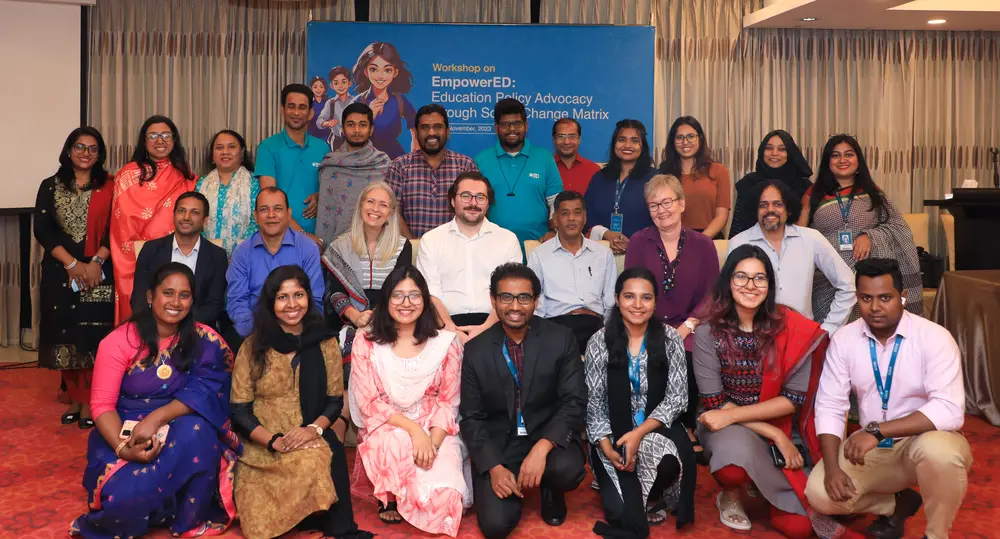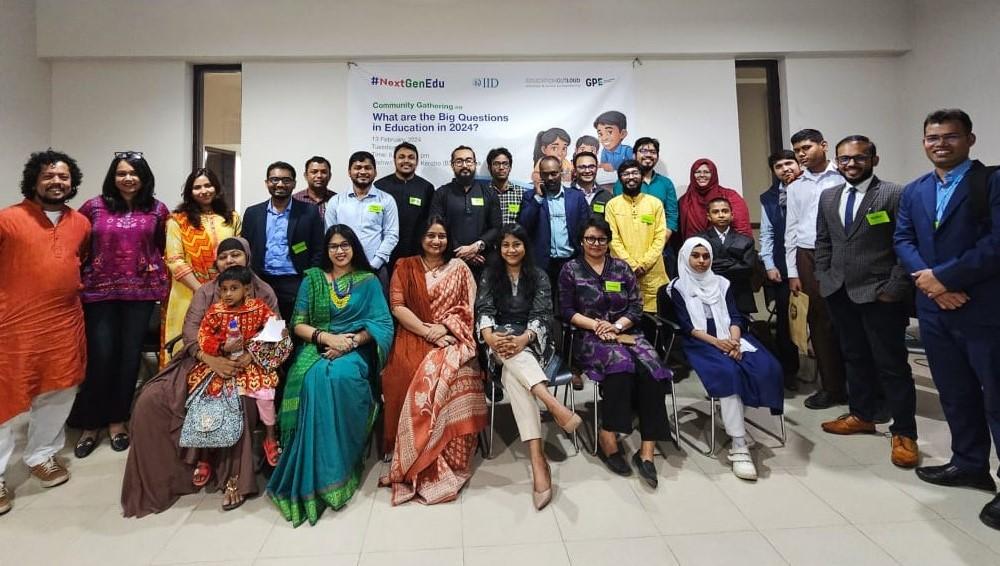“The journey of ASER is the story of innovation and expansion of Citizen-led Assessment(CLA) to improve learning across the globe”, said Syeed Ahamed, CEO of IID on 8 December 2021, while attending the 2021 Annual Meeting hosted by Network on Education Quality Monitoring in the Asia-Pacific (NEQMAP).
To capture a glimpse of CLA’s South Asian journey, Australian Council for Educational Research (ACER) and NEQMAP conducted a topical case study on ‘Using Assessment Data in Education Policy and Practice: Examples from the Asia-Pacific’. In light of that topical study, Mr. Ahamed shared the key findings with examples from Bangladesh, India, Pakistan, and Nepal case studies at the Annual Meeting. Findings show that the ASER learning assessment has become a reliable, scalable, and cost-effective tool for governments to monitor learning progress, and to interpret change over time at both the local government and community levels. The tool also helps bridge the data gap between the global pledge (SDGs) and local implementing partners on the ground by providing representative data on foundational reading and mathematics skills of children and young adults and can result in playing a vital role in bridging the social and economic learning gap as well. These findings evidently indicate that ASER can be an essential tool for citizens, CSOs, and policymakers alike in maximizing impact on education policy and decision-making to advocate for quality education through effective and efficient assessments.
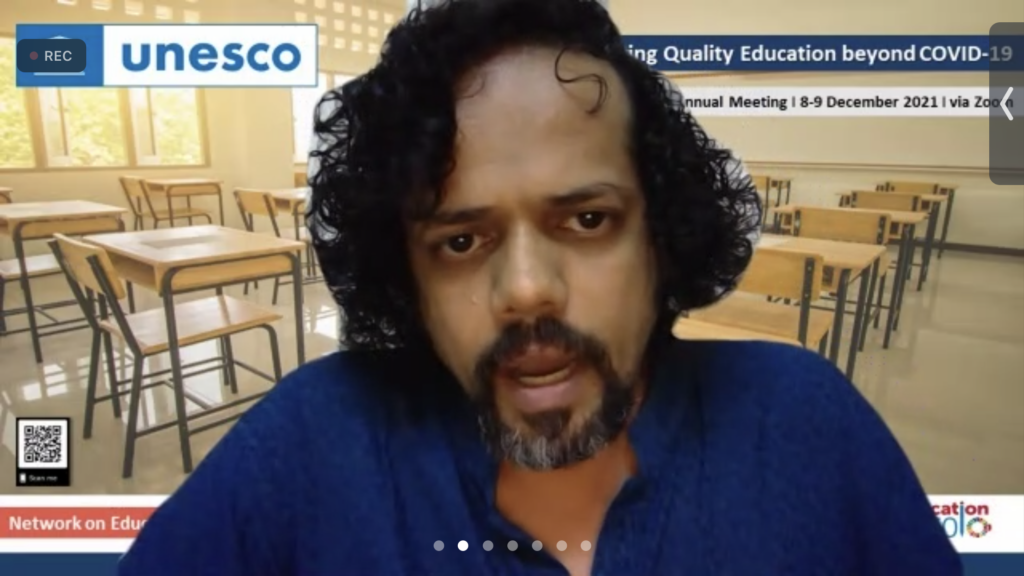
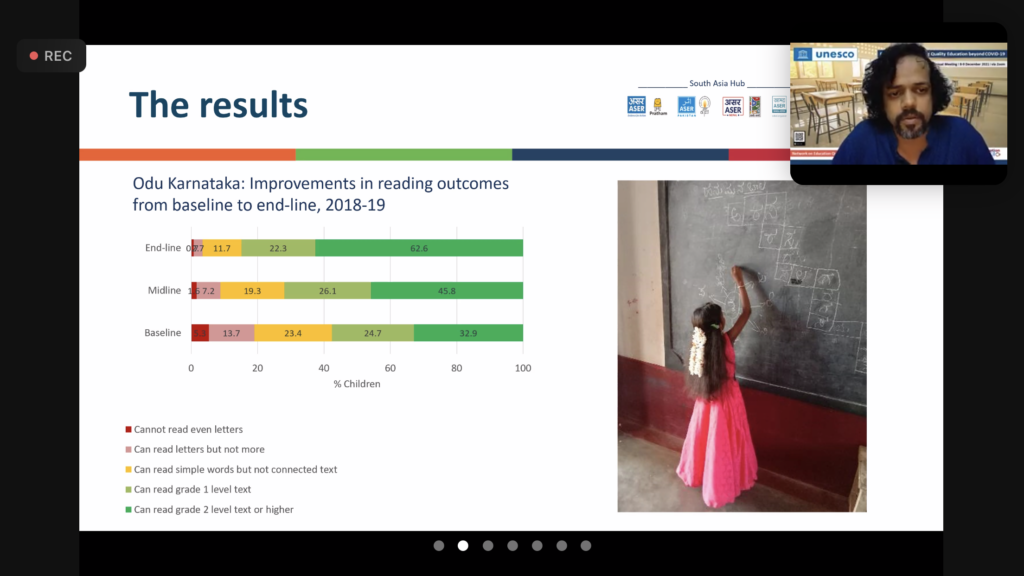
NEQMAP is hosting its 2021 Annual Meeting on, ‘Reimagining Monitoring Quality Education Beyond COVID-19’. This 2-day event has started today on 8 December 2021 and will extend till 9 December 2021 with an aim to update on members’ progress and their activities pertaining to monitoring learning during and in the aftermath of COVID-19, strengthen and revitalize the network’s collaborations, and identify the target activities in 2022 and 2023. The meeting was held online through Zoom in participation with all NEQMAP members, as well as partner organizations.
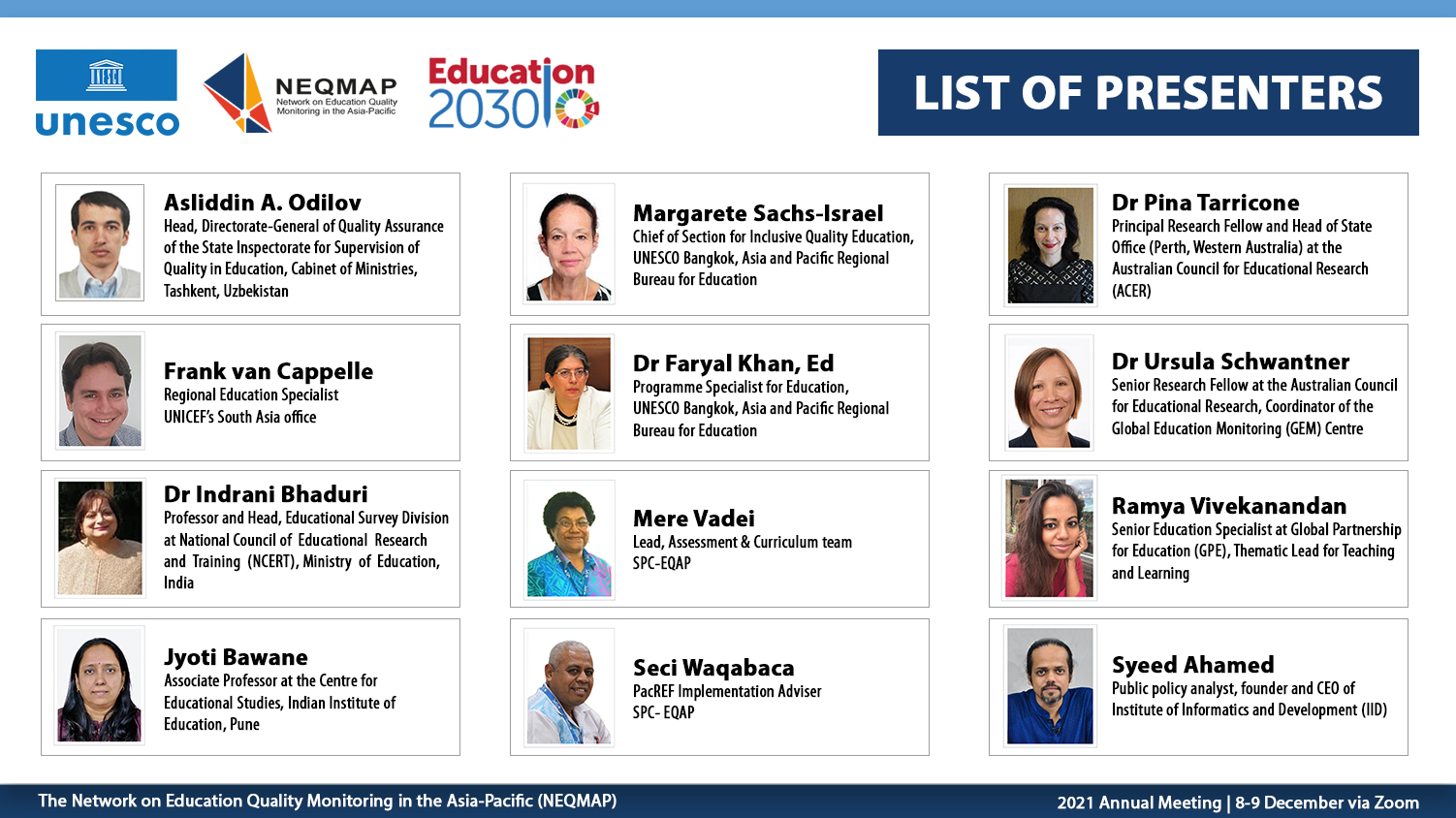
The presenters of the annual meeting include Dr Faryal Khan, Head of NEQMAP Secretariat; Margarete Sachs-Israel, Chief of Section for Inclusive Quality Education, UNESCO Bangkok; Frank van Cappelle, Regional Education Specialist, UNICEF South Asia; Ramya Vivekanandan, Senior Education Specialist, Global Partnership for Education (GPE); Dr Pina Tarricone, Principal Research Fellow and Head of State Office, ACER; Dr Ursula Schwantner, Senior Research Fellow, ACER; Dr. Indrani Bhaduri, Professor & Head of Educational Survey Division, National Council of Educational Research & Training (NCERT); Jyoti Bawane, Associate Professor, Indian Institute of Education (IIE); Asliddin A. Odilov, State Inspectorate on Supervision of Quality in Education, Uzbekistan; and the authors of country case studies from South Asia.

